School parents are less optimistic about the direction of K-12 education at the local, state, and national levels than they were earlier this year, according to a July national survey by Morning Consult on behalf of EdChoice.
Though half of parents (50 percent) still believe their local school district is headed in the right direction, this is down six points from when the same question was asked in March. Forty-four percent said K-12 education in their state is headed in the right direction, down three points from March, with 37 percent saying so about education at the national level, down five points from March.
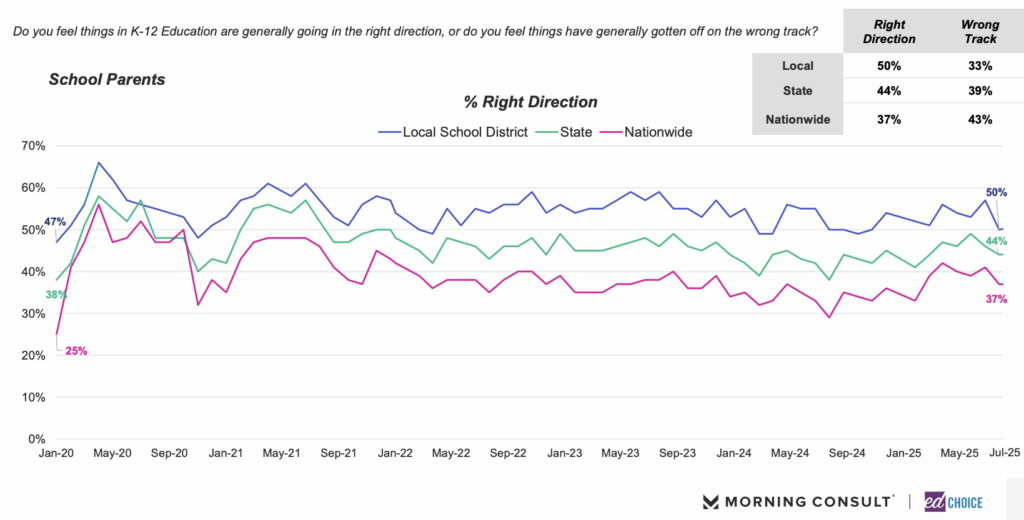
Compared to parents, only 37 percent of the general public thinks their local school district is going in the right direction, with 34 percent and 25 percent saying that about K-12 education at the state and national levels.
When asked how satisfied school parents were with their child’s experiences at the district school they attended, only 38 percent reported being “very satisfied.” Private school parents, on the other hand, expressed significantly higher satisfaction with their child’s schooling — nearly two-thirds (65 percent) reported being “very satisfied.” Also noteworthy is the fact that 19 percent of district school parents expressed dissatisfaction with their child’s schooling experiences, including six percent who said they were “very dissatisfied” compared to only five percent of private school parents who expressed dissatisfaction but none who reported they were “very dissatisfied.”
“The gap was not always this wide,” points out Colyn Ritter in his analysis of the poll data. “As recently as February of this year, the gap was only 12 points between private school parents (52%) and public school parents (40%). Since then, however, the proportion of private school parents who are very satisfied has rocketed up while the proportion of public school parents who feel similarly has leveled off.”
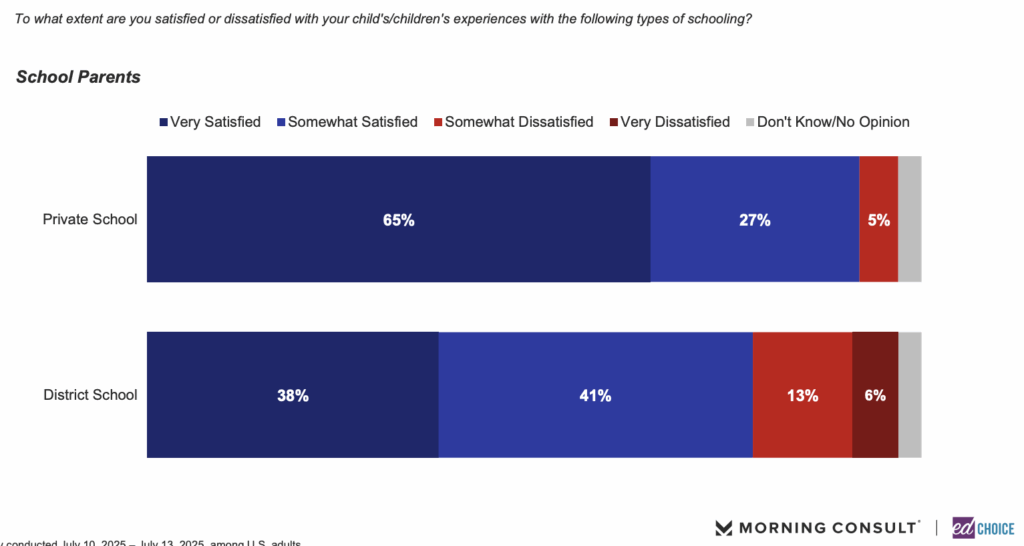
Minnesota school parents, how you do feel about the direction of K-12 education in your local school district? Use this database to find out how they measure up on third-grade reading proficiency.
If you are looking for ways to help your district improve, ask your school board about serving on the District Advisory Committee. This committee helps plan and improve the instruction and curriculum affecting state and district academic standards and recommends student achievement goals and strategies to ensure curriculum is rigorous and accurate, among other things.
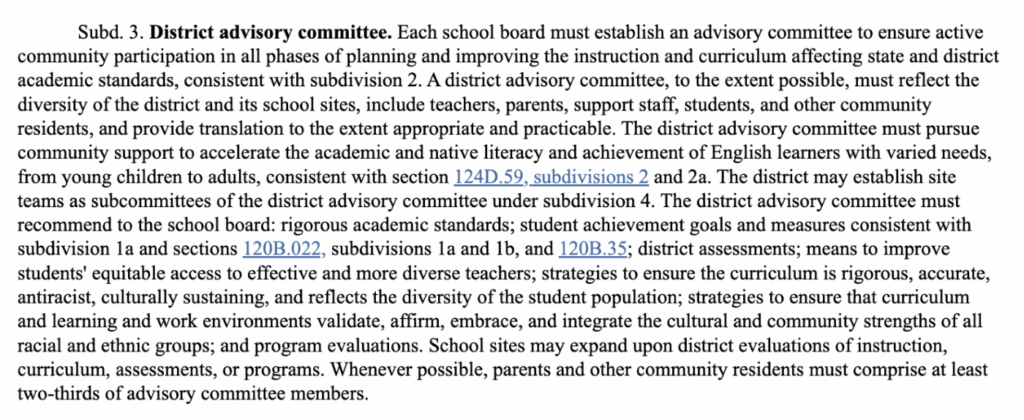








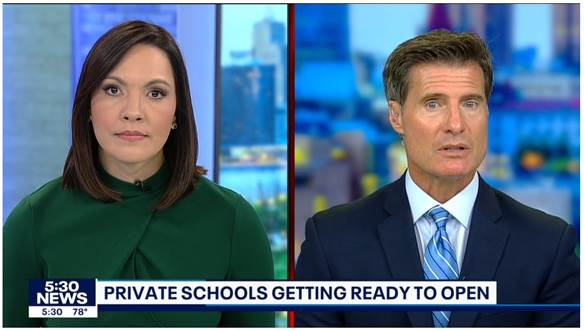
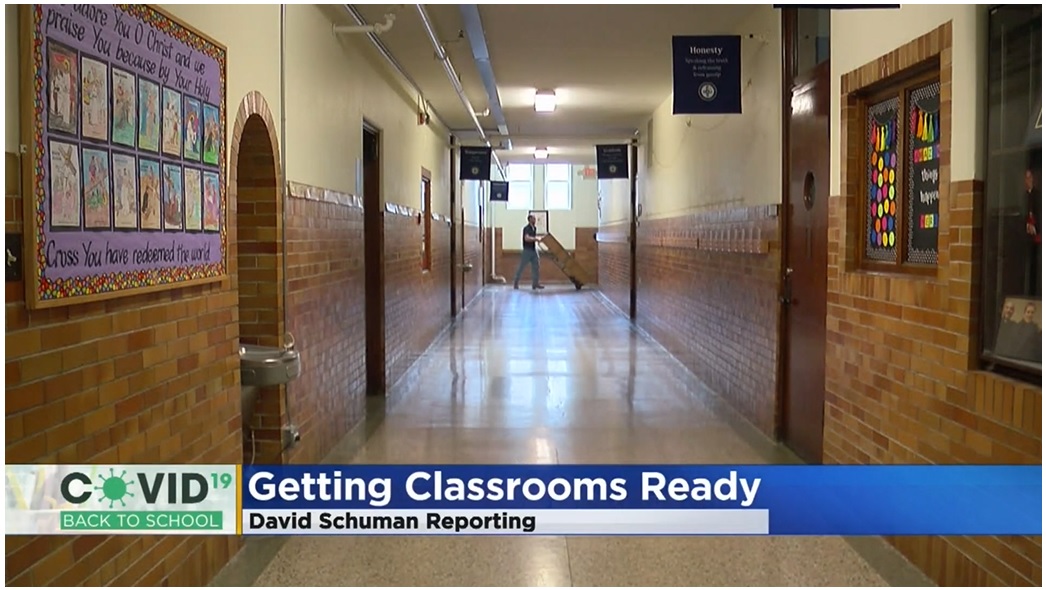



![[downloaded during free trial]](https://oakmn.org/wp-content/uploads/2025/11/iStock-1430368205-120x86.jpg)